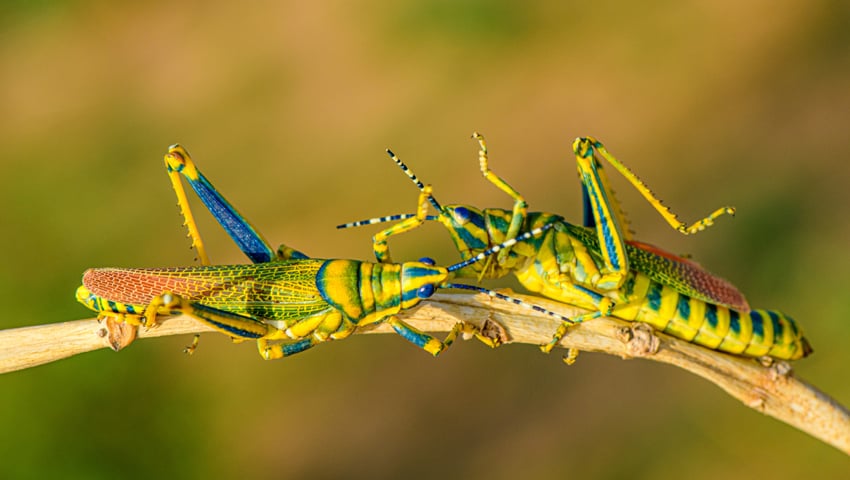A study by an international team of researchers finds that “Across the tree of life, microbial symbionts have enabled organisms to harness new forms of energy, access unobtainable nutrients and outsource critical functions such as defence. So valuable are symbiotic partnerships that they have repeatedly led to organisms becoming obligately dependent on each other for survival. Such interdependence between hosts and symbionts has led to the evolution of new levels of organismal complexity that have ultimately shaped the diversity of life on Earth.”
They say that “For over 300 million years, insects have relied on symbiotic microbes for nutrition and defence. However, it is unclear whether specific ecological conditions have repeatedly favoured the evolution of symbioses, and how this has influenced insect diversification.”
In their study the scientists apply data “on 1,850 microbe–insect symbioses across 402 insect families, and find that symbionts have allowed insects to specialize on a range of nutrient-imbalanced diets, including phloem, blood and wood. Across diets, the only limiting nutrient consistently associated with the evolution of obligate symbiosis was B vitamins.”
They say that “the shift to new diets, facilitated by symbionts, had mixed consequences for insect diversification. In some cases, such as herbivory, it resulted in spectacular species proliferation, but in other niches, such as strict blood feeding, diversification has been severely constrained. Symbioses therefore appear to solve widespread nutrient deficiencies for insects, but the consequences for insect diversification depend on the feeding niche that is invaded.”
They say that “the essential metabolic services provided by symbionts have enabled hosts to expand into previously uninhabitable environments. For example, sulfur-oxidizing bacteria enable giant marine tubeworms to live in deep-sea vents, root-associated fungi helped plants colonize land and nutrient-supplementing symbionts have allowed insects to live solely on the imbalanced diets of plant sap and vertebrate blood.”
The researchers say that insects are an excellent system to study the evolution of obligate symbiosis. Multiple insect families have acquired microbes to perform a range of functions, including defence and nutrition. Defensive symbionts protect their hosts from attack by natural enemies, whereas nutritional symbioses allow insects to feed on specialized resources that lack essential nutrients, such as plant sap, blood and wood.
The researchers say that it “appears possible to make relatively broad inferences about the causes and consequences of obligate symbioses in insects. Vitamin B supplementation by microbial partners is widespread in insects and has helped insect hosts to exploit novel food resources.
“In some cases, such as herbivorous insects, the shift to feeding on new resources appears to have facilitated adaptive radiations, analogous to textbook examples such as Darwin’s finches. In other cases, such as strict blood feeding, new niches seem to have severely constrained diversification. The intricate relationships between hosts and their nutritional symbionts therefore appear key to shaping patterns of global insect diversity.”
